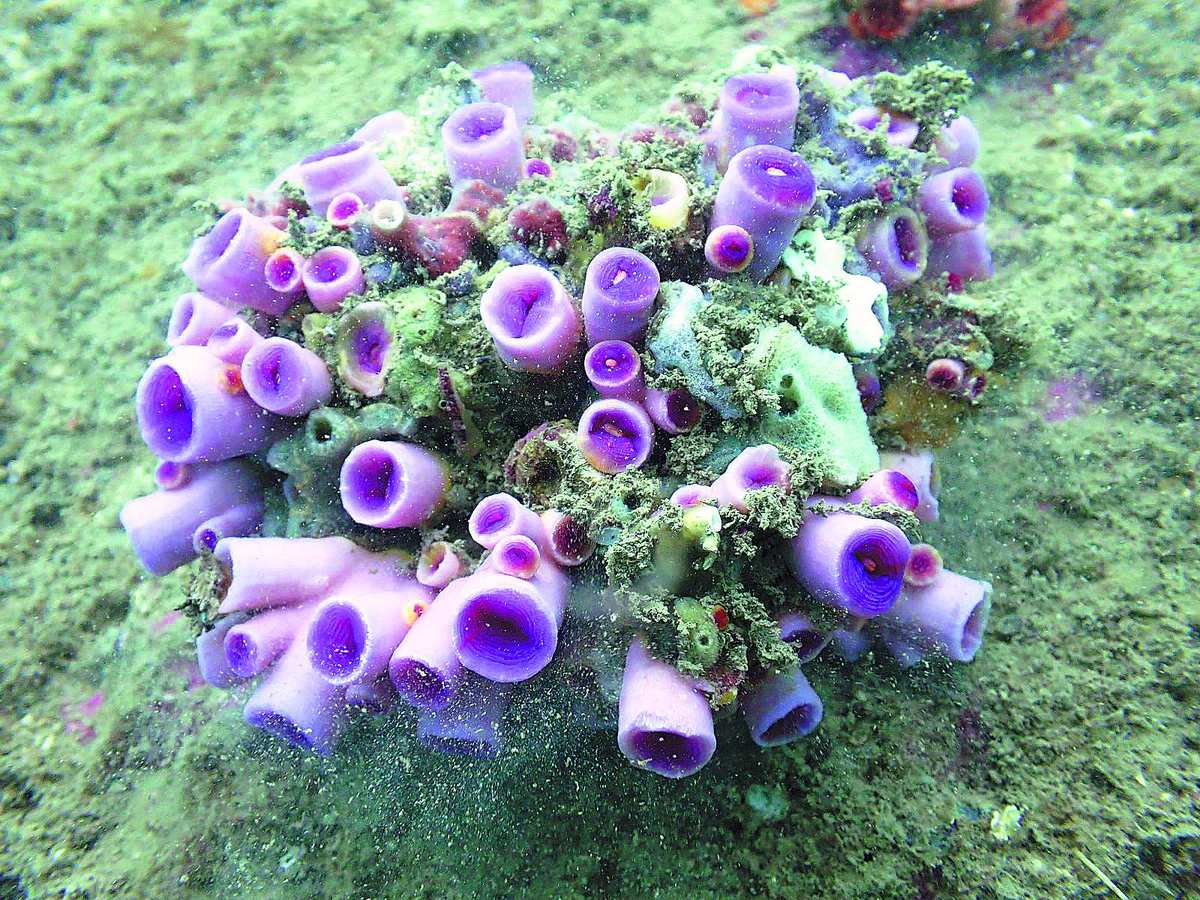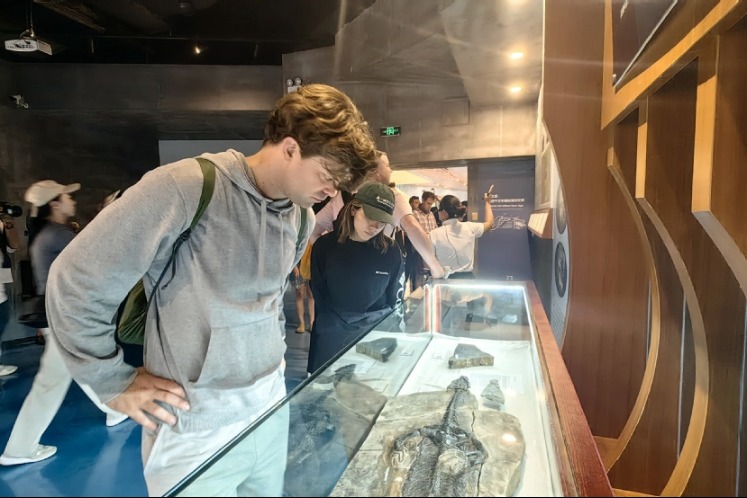Studies of little-known marine species championed in Hong Kong


"It was November when I dived, and the water was clear. I dived down to 15 meters and saw this forest of sea anemones the size of a soccer field, with clownfish darting among them," he said.
Diving not only deepened his understanding of humanity's relationship with the ocean, but also heightened his concern for marine life. Since becoming a diver, Qiu has taken part in annual volunteer activities to conduct a coral reef census — diving to assess the health of reefs. In 2014, he launched a series of research initiatives focused on the health of coral in Hong Kong waters.
To lay a robust foundation for this research, Qiu and his team needed to identify all the coral species involved. During this process, the team discovered four new species: Tubastraea megacorallita, Tubastraea dendroida, Tubastraea violacea and Tubastraea chloromura.
"The new species just revealed themselves as I was trying to identify the coral," Qiu said.
Bittersweet journey
"Only those who can endure loneliness can continue to explore this field," Qiu said.
For example, take the identification process for Chloeia bimaculata, the fireworms found in Hong Kong waters. The team first had to determine the genus of the specimen, and then compare it with other species within the same genus.
The Chloeia genus already comprised 27 species, most of them described in papers written in Latin, and dating to the 19th century. The handful of papers written in English only offered simple descriptions.
The team also borrowed holotypes, original specimens upon which the description of a new species is based, from the Natural History Museum in London. However, these specimens had largely lost their primary organs. It was only after a thorough comparison that the team concluded that the fireworm specimen belonged to a species not previously reported.
Qiu said this explains why there are no scholars in Hong Kong specializing in the classification of marine life. As a result, he has attempted to nurture local professionals to study marine biodiversity.























